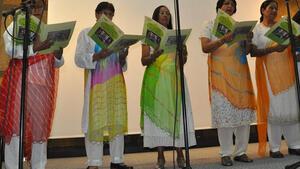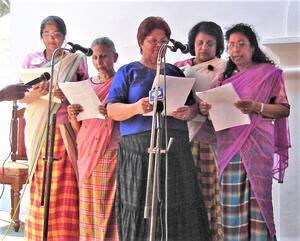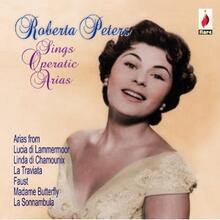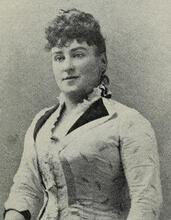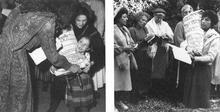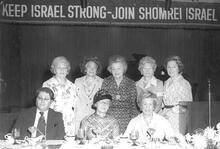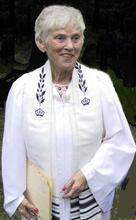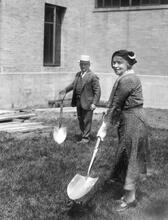Cochin: Jewish Women's Music
For many centuries, Cochin Jewish women have sung Jewish songs, both in Hebrew and in the Malayalam language of Kerala, their ancient homeland on the southwest coast of India. In Kerala, unlike in many traditional Jewish communities, Jewish women sang in Hebrew together with men in the synagogue, at the Shabbat family table, and at holidays and lifecycle events. Women also had an extensive repertoire of Malayalam-language Jewish folksongs. Today, almost all of the Cochin Jews live in Israel, and most of the collected songs are no longer performed or even remembered. Some songs, however, are preserved in field recordings and studio recordings, and a Cochini women’s group is actively engaged in reviving knowledge and performance of the traditional Malayalam songs.
Religious Involvement for Women in Kerala
For many centuries, Cochin Jewish women have sung Jewish songs, both in Hebrew and in the Malayalam language of Kerala, their ancient homeland on the tropical southwest coast of India. Kerala Jews are unusual among halakhically observant communities in the complex intertwining of female and male knowledge and performance throughout their musical repertoire. Now that almost all of them are living in Israel, Cochini women and men continue to share in singing their traditional Hebrew songs. Though Malayalam Jewish songs have always belonged to the women, men in their community often heard them performed in Kerala and are encouraging a revival of their performance by Cochini women in Israel today.
In Kerala, Jewish women sang in Hebrew together with men, joining in full voice to sing Hebrew liturgical poempiyyutim in the synagogue, at the SabbathShabbat family table, and at community-wide gatherings to celebrate holidays and life cycle events. In contrast to many other traditional Jewish communities, it was not their custom to prohibit men from hearing women’s voices raised in song. Many Kerala Jewish girls were educated in Hebrew along with boys (sometimes in mixed schools, sometimes separately), learning from an early age to read the Hebrew prayers and the weekly Torah she-bi-khetav: Lit. "the written Torah." The Bible; the Pentateuch; Tanakh (the Pentateuch, Prophets and Hagiographia)Torah portion, together with the ta’amei mikra for chanting it. Women attended synagogue on Sabbaths and holidays, when the Torah was read from a second upper Lit. "elevated place." Platform in the synagogue on which the Torah reading takes place.bimah (unique to Kerala synagogue architecture) on a balcony immediately in front of the women’s section, separated only by an open lattice screen, where they could see the Torah scroll as well as follow along carefully in the readings and prayers. Certain older women were noted for their proficiency in Hebrew and sometimes it was a grandmother or “aunty” who coached young boys as they prepared for the ritual of chanting their first haftarah and Torah portions in the synagogue.
Repertoire
The women also had an extensive repertoire of Malayalam-language Jewish folksongs, which they sang without instrumental accompaniment, at home and in public gatherings during life cycle and holiday celebrations. At times they sang for all-female events, such as a women’s party for the bride, but generally they performed in mixed gatherings, where the men of the community listened respectfully. A few of the songs are attributed to specific male composers, but most were anonymously composed.
Some are Jewish folksongs in the local Kerala style, populated with royal wedding processions, gold-clad brides with colorful flowers in their hair, an illustrious ancestor arriving by sea from Jerusalem in a wooden ship, and rulers who donated land and materials for the building of grand synagogues. Many of the songs are Biblical narratives spiced with classical A type of non-halakhic literary activitiy of the Rabbis for interpreting non-legal material according to special principles of interpretation (hermeneutical rules).midrash and occasionally with a distinctly South Indian element. Others are Malayalam versions of Hebrew piyyutim and blessings for particular occasions. A few are twentieth-century Zionist songs in Malayalam, preparing the Cochin Jews for Lit. "ascent." A "calling up" to the Torah during its reading in the synagogue.aliyah. Some of the melodies are folk-style Kerala tunes, some are shared with the Hebrew repertoire of Kerala, and some Zionist songs are set to mid-twentieth–century Indian cinema tunes and political chants.
Documentation and Preservation
Women who sang these Jewish songs often preserved the words in hand-written notebooks, which they passed on from one generation to the next, copying new songs as they learned them and taking the notebooks along to parties where they would sing the songs. Older women who were recognized experts took leadership in teaching the Malayalam songs and in leading the singing on group occasions—a leadership role that might be passed down in the family. Analysis of the notebooks reveals that some songs or song variants were associated with particular Kerala Jewish communities or congregations, but many were shared by women in different communities, illustrating frequent social interaction among various Jewish groups.
The literacy displayed in the old notebooks of Malayalam songs and the women’s knowledge of Hebrew is not surprising in the historical context of Kerala, a region of India unique both in its emphasis on literacy in general and in the relatively high status of its women in particular.
The texts of approximately three hundred different Malayalam Jewish songs—some with many variants—have been collected in thirty-two photocopied notebooks, now housed in the Ben-Zvi Institute in Jerusalem. Several of these notebooks are over a hundred years old and the vast majority of the collected songs are no longer performed or even remembered, since almost all the Kerala Jews immigrated to Israel beginning in the 1950s. Translation is complicated by the archaic language of many of the songs, the particularity of Jewish Malayalam, and the textual transformations resulting from combined oral and written transmission.
Performed versions of more than sixty songs are preserved in field recordings, some dating from the late 1970s, and in recent studio recordings, all available in the sound archives of the Jewish Music Research Center at the Hebrew University. In the past few years, international scholars in India, Israel, Europe, and the United States who are dedicated to studying these texts and musical recordings have produced a compact disc of the recordings, two books of translation and analysis, and a number of published articles about them.
In Israel, a Cochini women’s group organized by community member Galia Hacco is actively engaged in reviving knowledge and performance of the traditional Malayalam songs. In addition to meeting regularly, they have performed for a number of public events.
Chemana, Martine. “Les femmes chantent, les hommes ecoutent: Chants en malayalam (pattu-kal) des Kochini, communautes juives du Kerala en Inde et en Israel.” Bulletin du Centre Francais de Recherces a Jerusalem (September 2002).
Daniel, Ruby, and Barbara C. Johnson. Ruby of Cochin: An Indian Jewish Woman Remembers. Philadelphia: 1995.
Isenberg, Shirley, Rivka (Ruby) Daniel and Miriam Dekel-Squires. Tishah Shirei-Am Yehudiyim ba-Malayalam (Hebrew and Malayalam). Jerusalem: 1984.
Frenz, Albrecht, and Scaria Zacharia. In meinem Land leben verschiedene Volker: Baustein zu einem Dialog der Kulturen und Religionen, Texte alter judischer Lieder aus Kerala, Sudindien. Illustrationen Rainer Schoder. Ostfildern: Schwabenverlag, 2002.
Johnson, Barbara C. “‘Hen noseot et mahberoteihen itan’—shirei nashim Yehudiot mi-Kochin be-sfat ha-makom” (They Carry Their Notebooks with Them: Women’s Vernacular Jewish Songs from Cochin). Pe’amim 82 (2000): 64–80.
Johnson, Barbara C. “Till the Women Finish Singing”: An Historical Overview of Cochin Jewish Women’s Malayalam Songs.” The Journal of Indo-Judaic Studies 4 (2001): 7–22.
Johnson, Barbara C. Oh, Lovely Parrot!: Jewish Women’s Songs from Kerala. Compact disc with commentary and English translations. Anthology of Music Traditions in Israel 18, Edwin Seroussi, ed. The Jewish Music Research Center, The Hebrew University of Jerusalem, Jerusalem: 2004, English and Hebrew.
Johnson, Barbara C. “Afterword: The Songs and the Project.” In Karkulali, Yefefiah, Gorgeous!: Jewish Women’s Songs in Malayalam with Hebrew Translationsy Scaria Zacharia & Ophira Gamliel. Jerusalem: 2005, 208-226.
Jussay, P. M. “The Song of Evarayi.” In Jews of India, edited by Thomas Timberg, 145–160. New Delhi: 1986.
Kopf, Shula. “Pearls of Ancient Wisdom.” The Jerusalem Post Magazine. September 20, 2002: 7–9.
Seroussi, Edwin. “Zimrat ha-Piyyut ha-Sefaradi be-Kochin Hodu (The Singing of the Sephardi Piyyut in Cochin India). Piyyut in Tradition Series 2, Ramat Gan: 2001.
Zacharia, Scaria. “Possibilities of Understanding Malayalam Jewish Folksongs.” Journal of Indo-Judaic Studies 6 (2003): 29–47.
Zacharia, Scaria. “Malayalam and Jewish Malayalam.” Jewish Language Research Website, 2003. www.jewish-languages.org/jewish-malayalam.html.
Zacharia, Scaria & Ophira Gamliel, ed. and transl. Karkulali, Yefefiyah, Gorgeous!: Jewish Women’s Songs in Malayalam with Hebrew Translations, edited and translated with introduction and critical commentary (Malayalam and Hebrew). Jerusalem: 2005.

